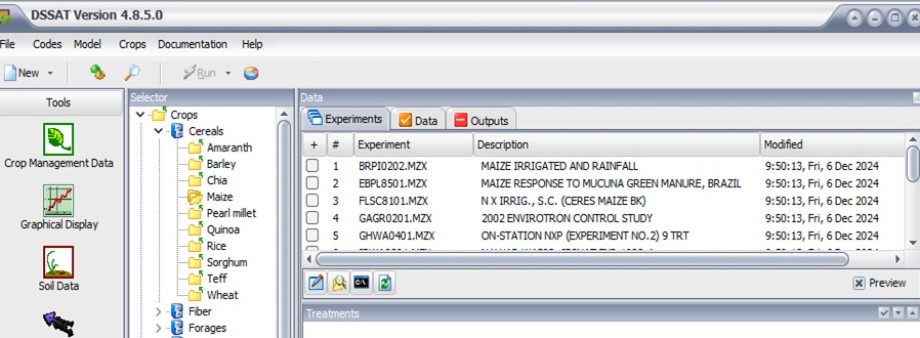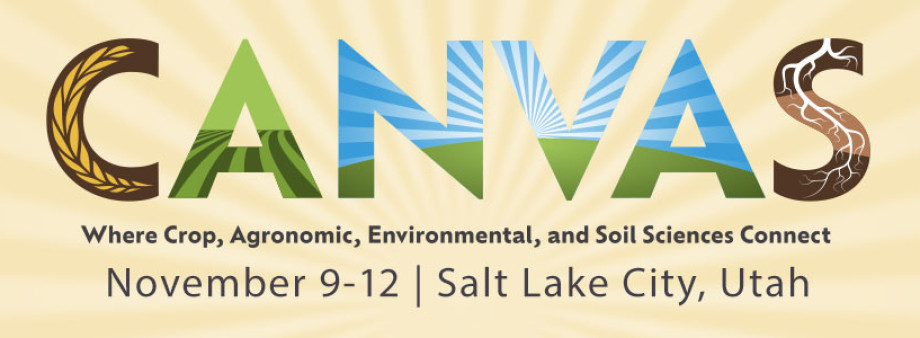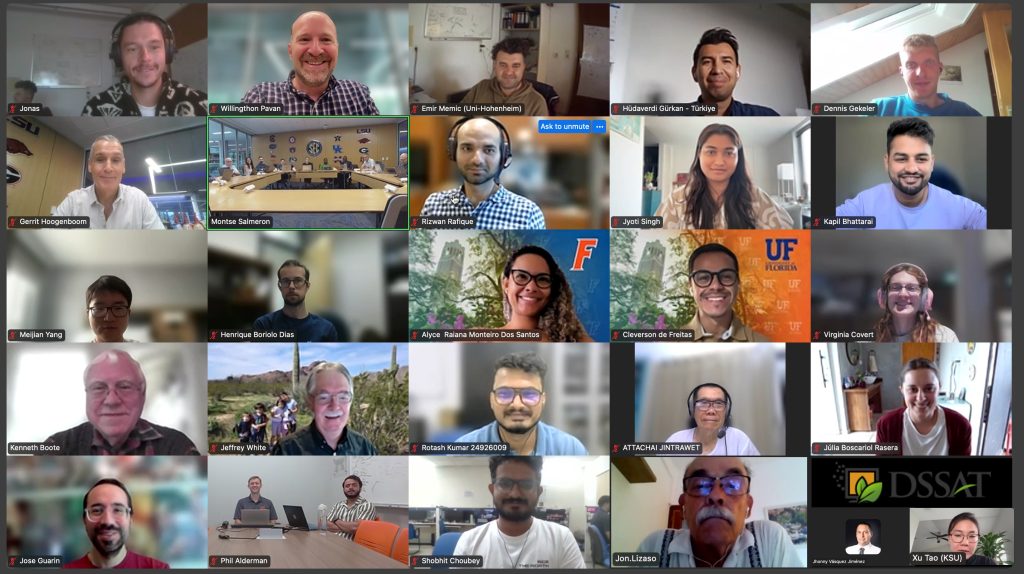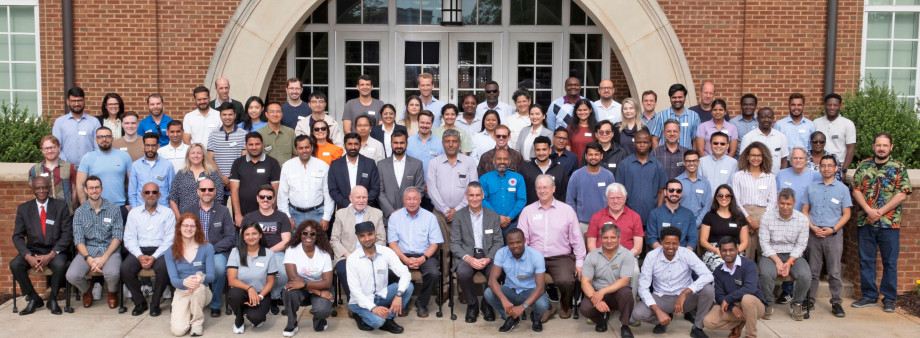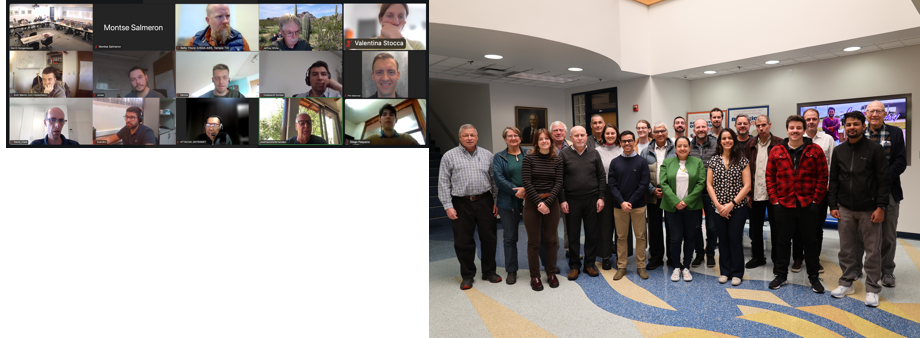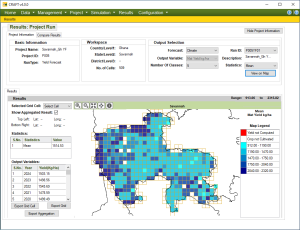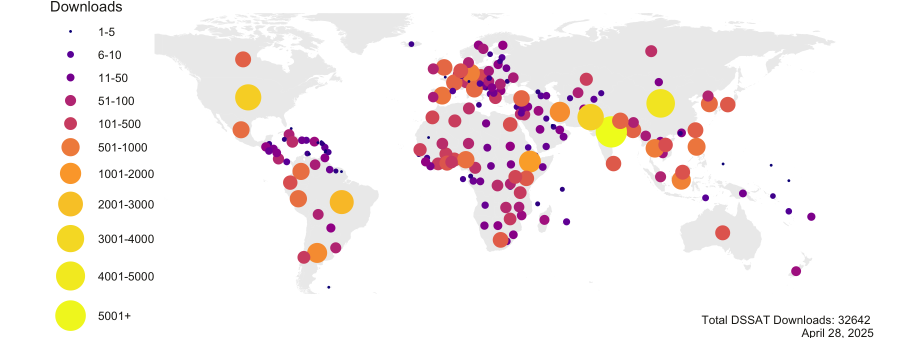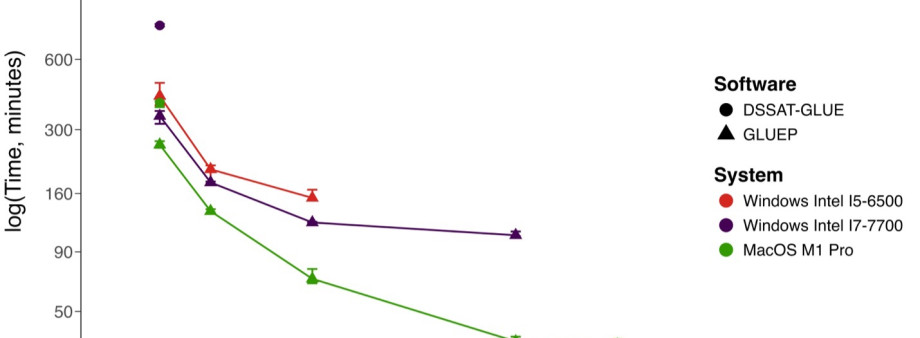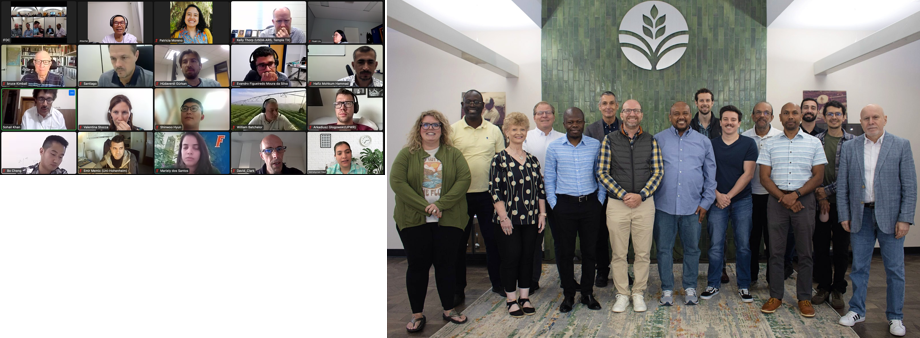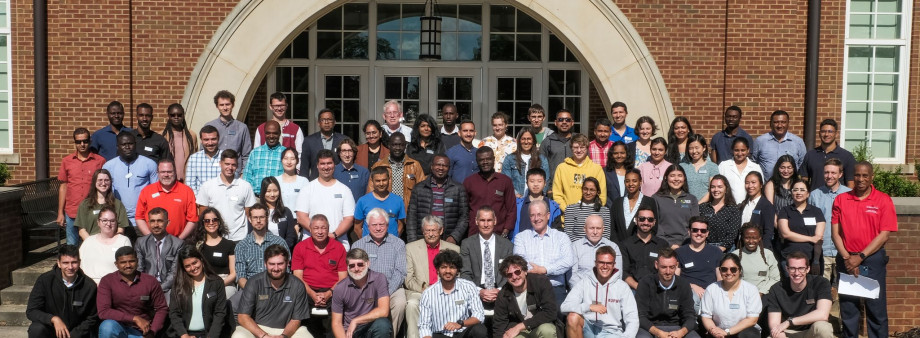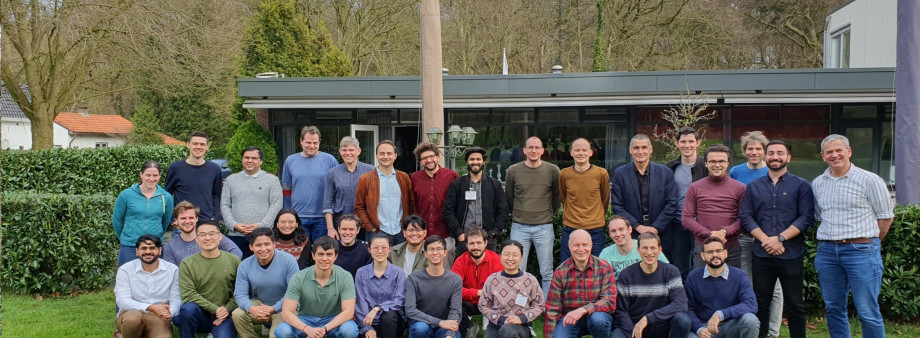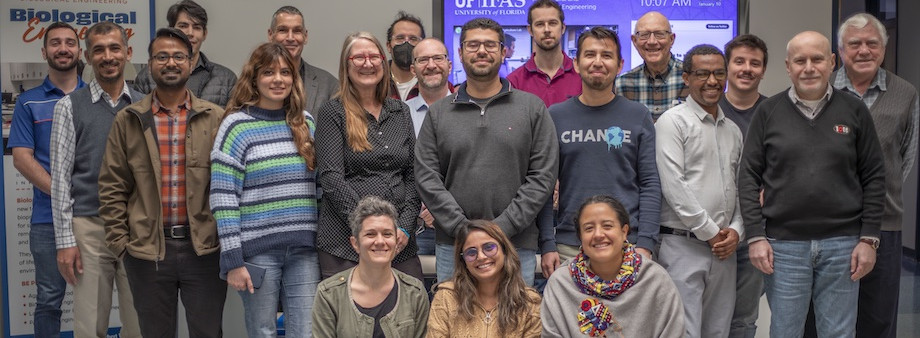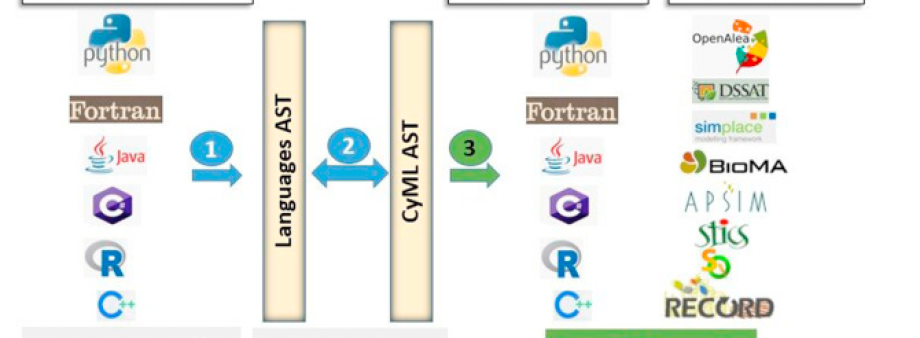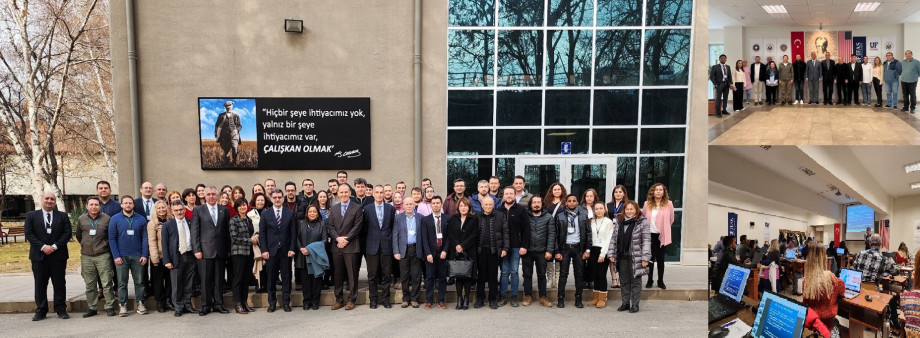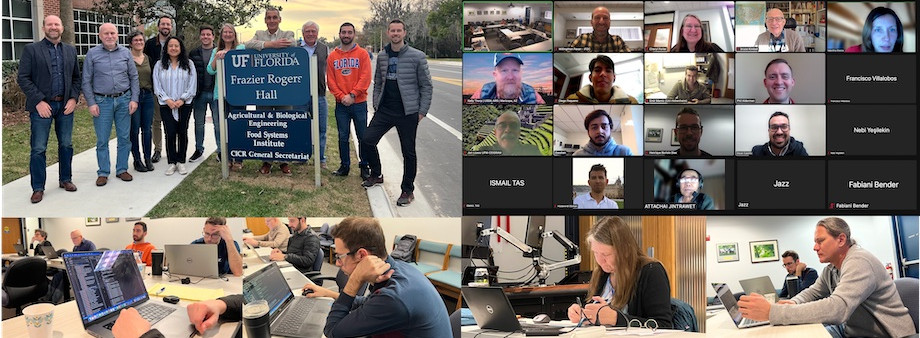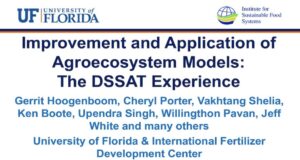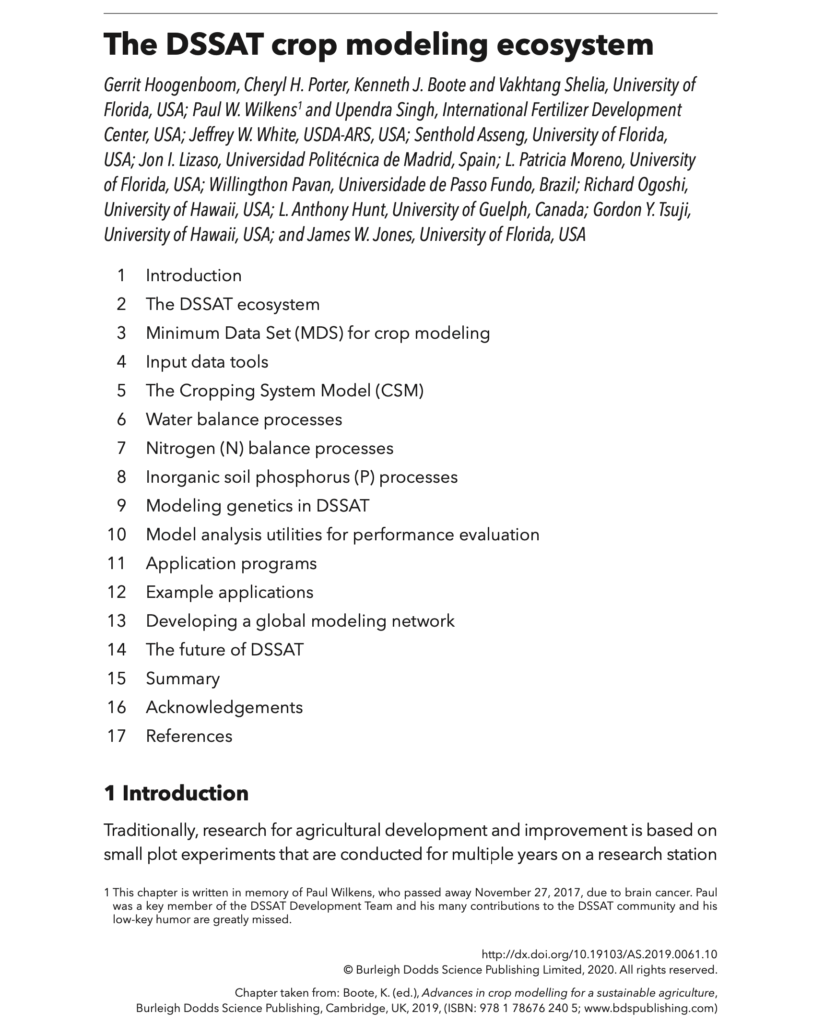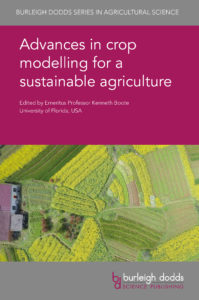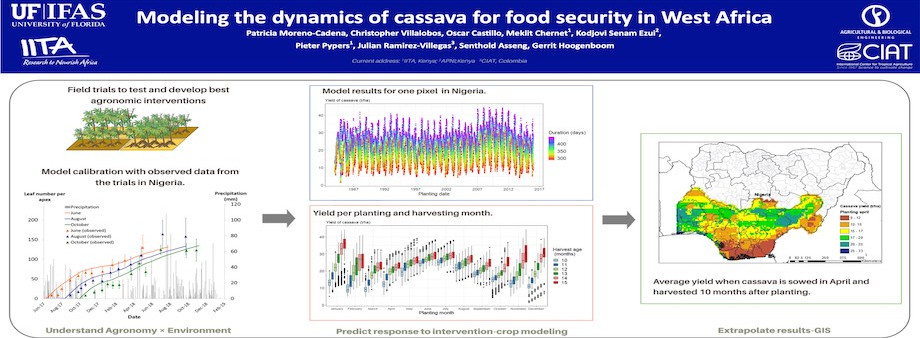What is DSSAT?
Decision Support System for Agrotechnology Transfer (DSSAT) is a windows-based software application program that comprises dynamic crop growth simulation models for over 45 crops. DSSAT is supported by a range of utilities and apps for weather, soil, genetic, crop management, and observational experimental data, and includes example data sets for all crop models. The crop simulation models simulate growth, development and yield as a function of the soil-plant-atmosphere dynamics. DSSAT has been applied to address many real-world problems and issues ranging from genetic modeling to on-farm and precision management, regional assessments of the impact of climate variability and climate change, economic and environmental sustainability, and food and nutrition security. DSSAT has been used for more than 30 years by researchers, educators, consultants, extension agents, growers, private industry, policy and decision makers, and many others in over 198 countries worldwide. Learn more…
Florida Crop BMP Data Template: New Videos
Researchers often struggle to organize data from field experiments in a way that ensures the work is fully documented and can readily be re-analyzed or used with models or other tools. The Florida Crop BMP Template is a simple spreadsheet-based tool for organizing data in a consistent fashion. Structured using categories similar to DSSAT’s file-X, […]
28th Annual Open Forum on Crop Modeling and Decision Support Systems
The DSSAT Foundation will be sponsoring the 28th Annual Open Forum on Crop Modeling and Decision Support Systems during this year’s ASA-CSSA-SSSA (CANVAS) 2025 International Annual Meeting. The forum is scheduled for Monday night, November 10, 2025, from 7:30 – 9:00 pm in the Grand Ballroom I, Salt Palace Convention Center, Salt Lake City, Utah. The forum is an […]
iCROPM 2026 – Crop Modelling for Agriculture and Food Security under Global Change
For further information, please visit the iCROPM 2026 web portal at www.icropm2026.org or contact the Secretariat at icropm2026@thetriumph.com.
[Q] How to fix reCAPTCHA issues by clearing your browser cache?
If you are having trouble with reCAPTCHA not loading or not verifying correctly, one common fix is to flush (clear) your browser cache. Over time, cached files can become outdated or corrupted, which may interfere with how websites and security tools like reCAPTCHA work. Here is how you can flush your cache: Open your browser […]
23rd Hybrid DSSAT Development Sprint at the University of Kentucky
The 23rd DSSAT Development Sprint was held from August 4–8, 2025 at the University of Kentucky in Lexington, Kentucky, and continued the DSSAT tradition of collaborative innovation in agricultural systems modeling. Hosted by Dr. Montse Salmeron and the Department of Plant and Soil Sciences, the event brought together participants in-person and virtually, with representation spanning […]
16th AMEI Development Sprint at INRAe, Montpellier, France
From June 16 to 20, 2025, the DSSAT team participated in the 16th AMEI Development Sprint in Montpellier, France, hosted by the Laboratory of Ecophysiology of Plants under Environmental Stress (LEPSE) of the French National Research Institute for Agriculture, Food, and the Environment (INRAe). The Agricultural Model Exchange Initiative (AMEI; available on GitHub and Crop2ML.org) seeks to advance agricultural […]
Updating the ICASA Data Dictionary (IDD)
The ICASA Data Dictionary describes approximately 1200 variables related to field experiments. Categories include metadata, crop management, measured crop and soil traits, soil profile descriptions, and daily weather data. These variables underly the ICASA data standards, which evolved in part from the terminology used in DSSAT. The IDD is accessible on GitHub at: https://github.com/DSSAT/ICASA-Dictionary Recent […]

